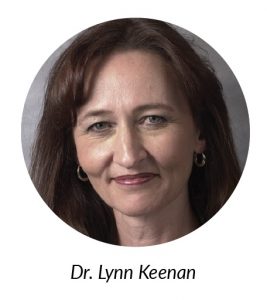Getting enough sleep?
Millions of people suffer from chronic sleep-wake disorders that make them struggle to get through the day. Many others burn the candle at both ends to juggle  work and family and play, but with the effect of electronic lights and lots of caffeine can keep pushing themselves through their busy days. But is this healthy, and how much sleep do we really need?
work and family and play, but with the effect of electronic lights and lots of caffeine can keep pushing themselves through their busy days. But is this healthy, and how much sleep do we really need?
A consensus statement in 2015 established adults should sleep 7 or more hours per night on a regular basis to promote optimal health. Over the years, multiple studies have linked sleep restriction, or getting less than 7 hours of sleep on a regular basis, to increased weight gain, diabetes, hypertension, heart disease, stroke, dementia, and death. In addition, studies have shown those who sleep less have poorer immune function. In a study by Dr. Aric Prather, subjects exposed to a cold virus were more likely to become sick if they didn’t sleep enough. Those sleep-deprived before getting the flu vaccine will also show less of a protective response.
It is very hard to lose weight if someone is getting less than 6 hours of sleep, and they will often start craving carbohydrates if sleep-deprived. So perhaps, the growing obesity epidemic in many countries may be made worse by significant numbers who chronically get less than 7 hours of sleep.
In addition to the personal effects on health of sleep restriction, sleepiness can have a significant impact on society, with more motor vehicle accidents. In a study comparing men ages 19-35 in a driving simulator, one night of missed sleep led to as many off-road driving incidents as those with a blood alcohol level of 0.08%.
Job errors can also increase. Those with chronic sleep deprivation have a harder time updating their strategies as new information arrives, and may continue to keep trying a failed solution. They can become moodier, with worse communication skills, and professionalism can lapse. Despite the decline in judgment, those with sleep deprivation tend to markedly underestimate their fatigue and the impact of the sleep deprivation on their function…so they may not actually realize how poor of a job they are doing.
What Can Be Done
So, what can we do to help more people get enough sleep? In recent years, we have tried to make the importance of sufficient, good quality sleep more of a priority at the University of California San Francisco – Fresno campus. Many medical residents become very sleep deprived with the long hours and changing shifts, along with balancing the rest of life. We gave all of the residency departments lectures on the effects of sleep deprivation, as well as on sleep disorders. We gave overviews of cognitive-behavioral therapy for insomnia, as well as screened for sleep apnea with free sleep testing and counseling. We gave monthly fatigue management tips and put light therapy boxes in their call rooms in the hospital to help improve alertness during the overnight shifts.
Our surveys before and after the interventions showed less fatigue affecting patient care, fewer near-miss motor vehicle accidents, fewer needle sticks, and better scores on sleepiness ratings. They had an increased understanding of the importance of better sleep and addressed it more often with their patients.
Perhaps we can all do our part to raise the awareness of getting enough sleep – to make all of us happier, smarter, and healthier.
References:
- Arnedt, J. T., Wilde, G. J., Munt, P. W., & MacLean, A. W. (2001). How do prolonged wakefulness and alcohol compare in the decrements they produce on a simulated driving task?. Accident; analysis and prevention, 33(3), 337–344. https://doi.org/10.1016/s0001-4575(00)00047-6
- Durmer, J. S., & Dinges, D. F. (2005). Neurocognitive consequences of sleep deprivation. Seminars in neurology, 25(1), 117–129. https://doi.org/10.1055/s-2005-867080
- Raphael, I., Almodovar, K., Bedrosian, A., Brandow, C., Choi, G., Saini, R., et al. (2018). 1061 the FRESNO project: Fresno residents’ experience in sleep and nighttime optimization, Sleep, 41(1), 394-395. https://doi.org/10.1093/sleep/zsy061.1060
- Watson, N. F., Badr, M. S., Belenky, G., Bliwise, D. L., Buxton, O. M., Buysse, D., Dinges, D. F., Gangwisch, J., Grandner, M. A., Kushida, C., Malhotra, R. K., Martin, J. L., Patel, S. R., Quan, S. F., & Tasali, E. (2015). Recommended Amount of Sleep for a Healthy Adult: A Joint Consensus Statement of the American Academy of Sleep Medicine and Sleep Research Society. Sleep, 38(6), 843–844. https://doi.org/10.5665/sleep.4716 Research Society. J Clin Sleep Med 2015;11(6):591–592.
…………………………………………………………………………………………………………………………….………………………………………………………………………………………………………………..
Dr. Lynn Keenan has been practicing sleep medicine for 28 years and is currently a clinical professor of medicine for the University of California San Francisco – Fresno and program director for the sleep medicine fellowship there.



